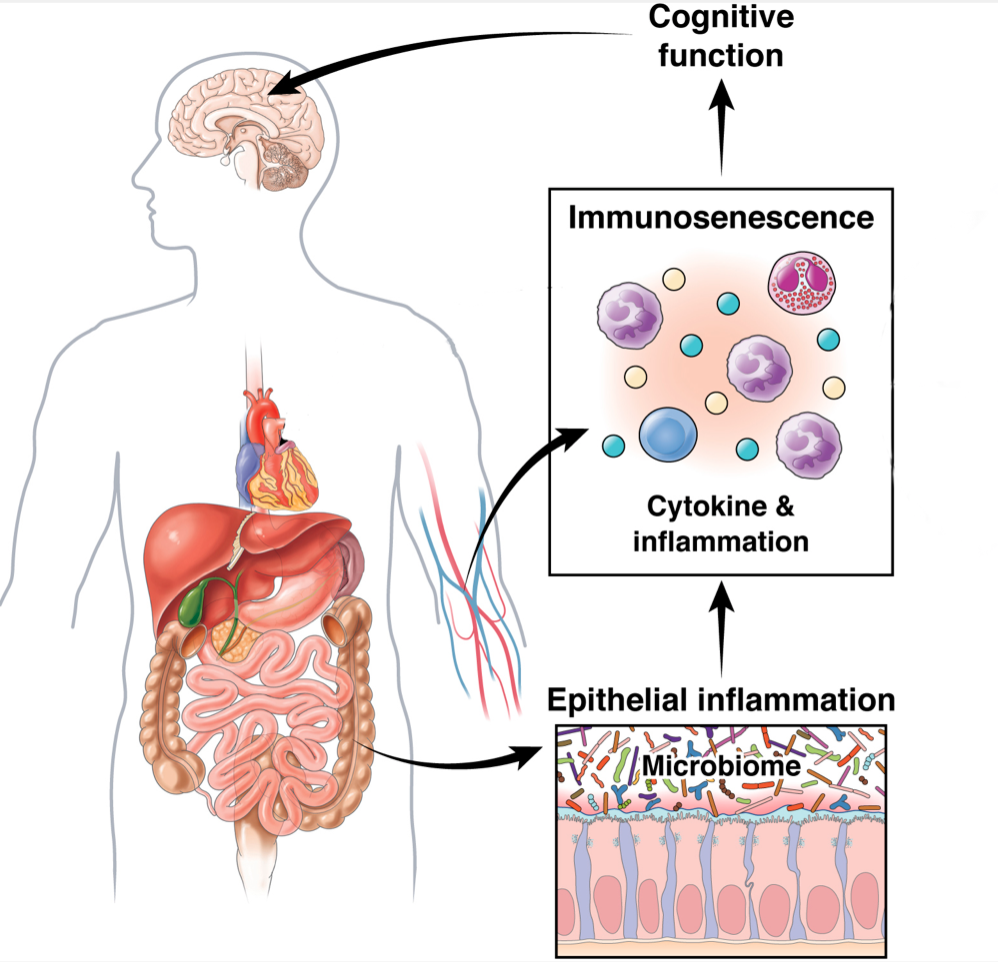You know that sinking feeling in your stomach when you’re anxious? Or the literal gut punch of bad news? It turns out, that’s not just a metaphor. There’s a real, physical highway connecting your brain and your belly—and the traffic is two-way. We’re talking about the gut-brain axis, a complex communication network that’s changing how we think about everything from mood to mental clarity.
Honestly, it’s a bit wild. For decades, we treated the brain as this isolated command center. But now? We know it’s in constant, intimate conversation with the trillions of bacteria living in your digestive system. This isn’t just some niche science; it’s a fundamental shift in understanding wellness. Let’s dive into how this connection works and, more importantly, what you can do about it.
The gut-brain superhighway: your body’s chatty communication loop
Think of your vagus nerve as the body’s main fiber-optic cable. It’s the longest cranial nerve, running from your brainstem all the way down to your abdomen, sending signals back and forth. This is the physical pathway for the gut-brain connection. But the conversation gets even more fascinating.
Your gut microbiome—that vast ecosystem of bacteria—doesn’t just sit there. It’s a chemical factory. It produces a staggering array of neurotransmitters and other compounds that directly influence your brain. For instance:
- Serotonin: Often called the “happiness chemical,” about 90% of your body’s serotonin is produced in the gut, not the brain.
- GABA (Gamma-Aminobutyric Acid): This neurotransmitter helps control feelings of fear and anxiety. Certain beneficial gut bacteria actually produce it.
- Short-chain fatty acids (SCFAs): When your good gut bugs break down dietary fiber, they produce SCFAs. These compounds can cross the blood-brain barrier and influence brain function and inflammation.
So, the state of your inner garden directly affects the messages being sent upstairs. A thriving, diverse microbiome tends to send calming, positive signals. A depleted, imbalanced one? Well, it can send out distress flares.
How your gut directly influences your mood and mind
This isn’t just theoretical. The research is piling up, and it’s compelling. The state of your gut health has been linked to numerous aspects of mental wellness.
Anxiety and Depression
Studies have consistently found that people with depression often have a less diverse gut microbiome compared to healthy individuals. It’s a correlation, sure, but animal studies show that transplanting gut bacteria from depressed individuals into mice can… induce depressive-like behaviors in the mice. That’s a powerful hint that the gut is playing a causal role.
Stress Resilience
A healthy gut can be your best defense against the whirlwind of modern life. The microbiome helps regulate your body’s stress response, the HPA axis (Hypothalamic-Pituitary-Adrenal axis). When your gut is out of whack, this system can become dysregulated, leaving you feeling perpetually wired and tired.
Brain Fog and Focus
Ever feel like you just can’t think straight? Chronic inflammation, often rooted in gut issues, can contribute to clouded thinking. By calming the gut, we can often reduce systemic inflammation and clear the mental cobwebs.
Nurturing your second brain: practical steps for a happier gut and mind
Okay, enough science. Here’s the deal: what can you actually do? The goal isn’t perfection. It’s about making small, consistent choices that add up to a big difference for your tiny internal residents.
1. Feed the good bugs (and starve the bad)
Your gut bacteria eat what you eat. It’s that simple. Focus on diversity and plants. Aim for a rainbow of fruits and vegetables every week. Each plant fiber feeds a different type of beneficial bacteria, so variety is key.
- Prebiotics: These are the food for your probiotics. Think fibrous foods like garlic, onions, leeks, asparagus, bananas, and oats.
- Probiotics: These are the live bacteria themselves. Find them in fermented foods like yogurt (with live cultures), kefir, kimchi, sauerkraut, and kombucha.
2. Manage stress… for your gut’s sake
Remember that two-way street? Chronic stress can decimate your beneficial gut bacteria. It’s a vicious cycle: stress hurts the gut, and a hurt gut amplifies stress. Break the cycle with intentional practices:
- Deep breathing exercises (it directly stimulates the vagus nerve!).
- Daily walks in nature.
- Mindfulness or meditation—even just five minutes.
3. Prioritize sleep
Poor sleep disrupts your gut microbiome, and a disrupted microbiome can lead to poor sleep. See the pattern? Aim for 7-8 hours of quality sleep to keep this delicate loop in balance.
4. Move your body
Regular exercise increases microbial diversity. You don’t need to train for a marathon. A brisk daily walk, dancing, swimming—anything that gets you moving counts.
A quick look at gut-friendly foods
| Food Type | Examples | Key Benefit |
| Probiotic Foods | Yogurt, Kefir, Kimchi, Sauerkraut, Miso | Introduces beneficial live bacteria to the gut. |
| Prebiotic Foods | Garlic, Onions, Asparagus, Oats, Apples | Feeds and nourishes the good bacteria already there. |
| Polyphenol-Rich Foods | Dark chocolate, Green tea, Olives, Berries | Act as fuel for microbes and have antioxidant properties. |
It’s not about a single “miracle” food. It’s about building a pattern, a habit of choosing these things more often than not.
The final word: it’s a relationship
We’ve spent so long looking for answers to mental wellness solely in our heads. The real answer, it seems, might be a lot closer to home—in the intricate, bustling world of our gut. This connection is a profound reminder that we are ecosystems, not machines. We can’t just fix one part in isolation.
Caring for your gut is an act of caring for your mind. It’s a long-term relationship built on daily, small acts of kindness towards yourself. So the next time you feel a gut feeling, maybe it’s worth listening. It might just know what it’s talking about.


